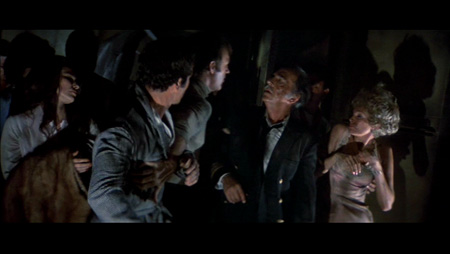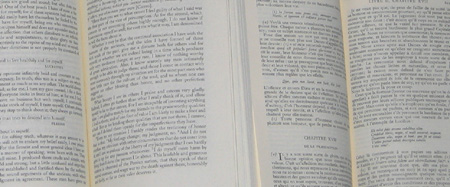In her Huffington Post piece this morning, Nora Ephron complains that it is hard to be a Democrat these days. I agree with her, and I share her reasons for being a Democrat. But at the top of the list of “what’s wrong with Democrats today” I would put, not Hillary or Barack or John or anybody in Congress but – Democrats like Nora Ephron.
It’s hard to a Democrat these days because Democrats like Nora Ephron make me carry on as if I were David Brooks, and I hate that about me.
Sure, it would be nice to get an unequivocal denunciation of torture from the prospective attorney general – although I’m not sure that it would be entirely grown-up. “Unequivocal” and “lawyer,” see, are not words that belong in the same sentence, and it’s childish (and nothing but childish) to refuse to see that lawyers, including the Attorney General, are supposed to be equivocators. Michael Mukasey says that he doesn’t like waterboarding, but he refuses to tie his hands regarding agreements and contracts that he won’t be able to read until he’s actually Attorney General. Congressional Democrats who happen to be lawyers, just like lawyers across the board in the United States, have recognized the acceptability – the decency, even – of Mr Mukasey’s position. As Ms Ephron quotes Senator Charles Schumer as saying, Mr Mukasey is probably the best candidate that the Bush Administration is going to present to Congress. This is not a meaningless observation. In Alberto Gonzales, we saw the worst. There is a difference.
Except there isn’t, not to the Nora Ephrons. To moralistic Democrats, there is only one tiny shining issue, and it must be resolved before we can sleep at night. You would think it was 1968 – especially if, like me, you were there in 1968.
If I have stayed out of the Mukasey debate so far, though, it’s because I am offended – claiming even higher moral ground – that there are Democrats who put torture, which may be gravely immoral but which affects only a handful of people in uncertain situations, ahead of the economy, which affects everybody, especially including every child in the United States. The Bush Administration has done what it could to screw up the economy, but it has had a lot of help from Congress, from Wall Street, from the think tanks and the media – in short, from everyone who has stood up for unfettered free-market capitalism. The result is a looming financial meltdown – a seizing-up of the engines of market liquidity – accompanied by the collapse of two major investment banks, Citigroup and Merrill Lynch. This is what we should be paying attention to right now – this and the blood-curdling fall of the dollar – not the scholasticisms of “torture.”
Once upon a time, during the New Deal that Ms Ephron claims to venerate, there was a piece of legislation that made it impossible to put “Citigroup” and “Merrill Lynch” in the same sentence. Citigroup was a commercial bank, while Merrill Lynch was a broker-dealer, and the Glass-Stegall Act of 1933 made sure, for sound hygienic reasons, that the twain did not meet. Before it was even repealed, Glass-Stegall was dismissed by the arrogance of Sanford Weill, the man who put Citigroup together in defiance of then-current law. My bet is that the saner heads at both embattled institutions – unlike Enron, Citigroup and Merrill are companies of enormous vitality and substance, and we can’t really afford to do without them – wish that they could scurry back behind what were essentially the protective prohibitions of the 1933 act.
Let’s talk about the New Deal, then. Let’s get off the high horses of Right and Wrong – leaving Jacobinism to the Republican rump – and roll up our sleeves about the economy. Can we manage to control it again, before it goes into the tailspin against which New Deal legislation provided such effective safeguards?
I wish that it were easier to put “Democrat” and “common sense” in the same sentence.
 It will take a while, I expect, for a clear narrative to explain Jérôme Kerviel’s disastrous trades at SocGen. All we know now is that nobody can figure out how the young man contrived to hide his balloon of unauthorized bets. Well, we do know one other thing. It is mentioned in almost every news story, even though it has nothing to do with the wrongdoing. Mr Kerviel did not attend one of the Grandes Écoles — those redoubtable institutions that the Times this morning compared to Harvard and MIT. No; he attended a “business college in Lyon.” We all know that.
It will take a while, I expect, for a clear narrative to explain Jérôme Kerviel’s disastrous trades at SocGen. All we know now is that nobody can figure out how the young man contrived to hide his balloon of unauthorized bets. Well, we do know one other thing. It is mentioned in almost every news story, even though it has nothing to do with the wrongdoing. Mr Kerviel did not attend one of the Grandes Écoles — those redoubtable institutions that the Times this morning compared to Harvard and MIT. No; he attended a “business college in Lyon.” We all know that.












